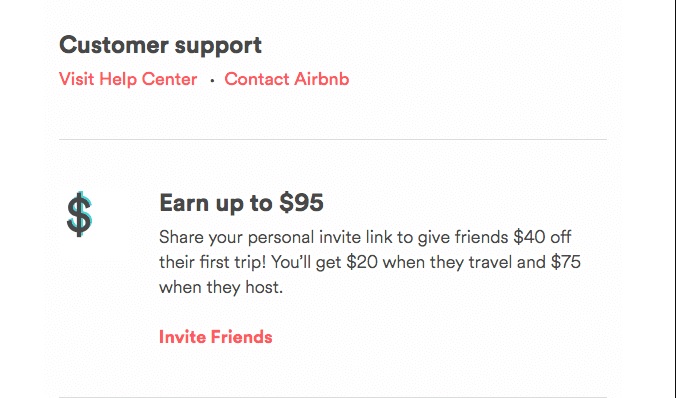Marketing Campaign Definition and How to Create a Successful One
To thrive in today’s dynamic market, promote products, engage existing customer base or acquire new ones, businesses leverage marketing campaigns. Learn about the different types of marketing campaigns, popular examples, and how you can create one.
Running a marketing campaign is important for all sizes of businesses and for various purposes besides brand awareness. It involves market and customer research at the core. But the choice of using channels, digital, offline, or omnichannel entirely depends on the objectives.
Table of Content
Best-suited Digital Marketing courses for you
Learn Digital Marketing with these high-rated online courses
Defining a Marketing Campaign
A marketing campaign involves a defined set of activities to meet a specific business objective.
It is not only about promoting a product or service or generating revenue. The goal can also be about brand promotion so that it is identified as a thought leader among the competition.
A marketing campaign utilises a variety of media, online to offline. Depending on the target audience, brands leverage one or more digital channels and may rely on traditional media, including television and radio, as well.
As a whole, any marketing campaign has two crucial factors
- Meeting a specific goal (brand awareness, customer retention, or increasing sales)
- Choosing the right distribution channel (s)
Popular Types of Digital Marketing Campaigns with Examples
As digital marketing helps brands communicate directly to customers online, marketers usually go for online campaigns.
They would make use of a combination of email, social media, and content marketing, among others.
(Or they can choose just one of the types of digital marketing.)
Let’s dive into two of the most commonly used types of digital marketing campaigns.
Email Marketing Campaigns
Email marketing campaigns are popular in B2B digital marketing strategies. According to CMI, 93% of B2B brands use an email marketing strategy. But B2C companies use them too, as 72% of customers prefer email as the main means of communication from brands (Constant Contact).
For such campaigns, brands generally use email marketing tools to trigger automated messages when a user completes an action. Generally, they create emails for a singular purpose with an email design that will have a personalised subject line and a predefined call to action. And this objective is measured over a specified time period.
Benefits of Email Marketing Campaigns
Email marketing campaigns can be used for
- Nurturing leads to convert them. For example, welcome emails
- Re-engaging existing customers. For example, cart abandonment emails
- Increasing the number of times your subscribers are opening your email.
- Improving brand perception
Examples of Email Marketing Campaigns
One of the common examples of an email campaign is transactional emails. These are sent to inform the subscriber of account activity, purchase confirmation, etc. A study from Epsilon shows that transactional emails are likely to be opened about 69% more than a common marketing email.
Transactional emails can be used for
- Welcome emails
- Cart abandonment emails
- Password reset
- Confirmation emails
Airbnb utilises transactional emails when the traveler confirms a booking and incentivizes the user by giving discounts.
Airbnb also sends personalised emails to its subscribers and their locations. It uses data from users and prompts them to take the next holiday nearby through such personal emails.
Related: Airbnb digital marketing strategy
Social Media Marketing Campaigns
Social media marketing campaigns generally have one business objective. That means a campaign will have a single message that can appear with different types of content and one common hashtag across social channels.
For that, brands can use one or more social channels (Facebook Messenger, WhatsApp, Instagram, Twitter, LinkedIn or all).
Benefits of Social Media Marketing Campaigns
Social media marketing campaigns not only help in increasing followers but also help your other digital assets. Some key benefits are
- Increasing your website traffic
- Interacting with your audience and encouraging them to bring in more audience
- Boosting sales
Example of a Social Media Marketing Campaign
One of the best examples is the ‘Share a Coke’ campaign from Coca-Cola. This marketing campaign leveraged social media channels such as Facebook and Twitter along with traditional advertising mediums, TV ads and billboards.
Originally it started in Australia and New Zealand back in 2011, and it caught on around the world. This campaign extended for seven years.
The brand targeted teens and millennials. According to The Coca-Cola Company, “Our research showed that while teens and young adults loved that Coca-Cola was big and iconic, many felt we were not talking to them at eye level.”
The best way to reach them was personalisation. The campaign showed first that it was about the audience and how they should reach out to them. The brand encouraged the audience to spread the word on social media with the hashtag #shareacoke.
The Result
- 500,000 photos were shared on social media with #shareacoke
- Coke increased followers by 39% on Facebook (WebFX)
- On Twitter, the engagement rate was 7.8%, when the benchmark was 1.5% (mrs.org.uk)
- On Instagram, the average like rate was up by 8.7% when the benchmark was 2 – 4 % (mrs.org.uk)
Coca-Cola is a more-than-a-century-old beverage brand. It utilises a variety of marketing tactics to connect with its audience. Learn more about how the brand is historically successful in marketing and how it transformed digitally in our blog on Coca-Cola digital marketing strategy.
How to Create A Marketing Campaign From Scratch?
Setting and Quantifying Goals
Defining goals in a marketing campaign differs from business to business. But some common objectives are
- Raising brand awareness for acquiring new customers in the target audience
- Search engine optimization to increase website traffic
- Increasing social media engagement
- Increasing ROI
Have a look at organic vs paid marketing strategies to find out when you should rely on either of them.
One of the most commonly used frameworks for setting goals is SMART –
- Specific – Ensures that you focus on one target. For instance, the focus is on increasing social media followers.
- Measurable – The goal should be trackable. For instance, increase followers by 50%
- Actionable – The goal is achievable. For instance, increase followers by 30 – 50%
- Relevant – The goal aligns with your business strategy. For instance, by increasing social media followers, you can establish authority in your niche
- Time-bound – It should have a deadline. For instance, you will increase 50% of social media followers within 6 months.
Setting up a Marketing Budget
For the goal to be achieved, you have to determine the finances. Setting up a marketing budget gives you how much you are going to spend in a specified period of time. And this amount is dependent on the size of the business you have.
According to Big Commerce, small businesses usually cover 7 to 12% of the entire revenue that comes from sales. Overall, a marketing budget should not be too high that goes beyond your ROI, nor should it be too less to an extent that your target audience remains unaware of you.
Performing Market Research
For your marketing campaign to be successful, narrow down on how your product or service will fit the market. This helps you define your value proposition for positioning your brand better.
All in all, market research is all about collecting data. You can do so with the following
- One-on-one interviews with customers
- Surveys
- Competitor analysis with pricing
Another important factor is researching your previous marketing campaigns and determining their successes and failures.
Learn about marketing research in detail.
Identifying your target audience is the most crucial part of market research. Here are two broad questions that you need to ask about your target audience.
- What motivates your target audience?
You have to know the factors that motivate your existing and potential customers. For example, more and more consumers are now demanding businesses make a positive societal impact.
Consumers are also quick to see through hollow brand promotional activities. According to WE, 52% of consumers believe brands that take part in societal change are just looking to drive sales.
- Which platforms are great for your target audience?
Consider where your target audience prefers to visit in the online space. Nowadays, social media is one of the best platforms to connect with an audience. About 78% of consumers believe that the fastest and most direct way to reach audiences is through social media (Sprout Social).
Additionally, you can leverage SEO tactics to know about your target audience and to create a buyer persona based on what they are likely to search. For that, you would need to perform keyword research as well.


Promoting and Tracking Your Marketing Campaign
Once you are all set, you will need to promote your campaign across the right channels.For that, you can utilise an inbound marketing strategy that lets you improve customer experience across the touchpoints.
You can even implement marketing automation that helps you schedule emails and social media content that are personalised for your respective audience segments.
After sharing your emails, content, posts, etc out into the world, comes the tracking of key performance indicators (KPIs).
Some KPIs for emails can be
- Email open rate
- Click-through rate
- Spam complaints
For social media, the KPIs can be
- Impressions
- Follower count
- Likes
- Comments
- Cost-per-click (for sponsored social media ads)
- Net promoter score
Related: How to increase Instagram followers
FAQs
Which are the other types of marketing campaigns that a modern business can go for?
While email marketing and social media marketing campaigns are broadly used, there are other types as well. 1. Traditional media campaigns - These campaigns leverage print, radio and television. 2. Partnership marketing campaigns - When two companies collaborate to promote a similar product or service to a similar target audience 3. Influencer marketing campaigns - When a brand collaborates with an influencer to engage social media audiences through giveaways and discounts
When does a marketing campaign become successful?
Successful marketing campaigns help in retaining existing customers, building brand authority in a specific industry niche, etc. Overall, the success of a marketing campaign depends on the specific marketing goal. It is also time-bound and should be measurable. A marketing campaign can be measured by tracking your marketing efforts. If the campaign is not performing as desired, there is always room to improve it as well. Other than that, a successful marketing campaign is determined by how memorable it is.
Which are some of the most famous and best examples of marketing campaigns?
Apart from the ones mentioned above, there is Dove's Real Beauty Campaign, which started in 2004. The brand collaborated with Ogilvy & Mather to create a reality-based campaign. It challenged the stereotype of a 'beautiful woman' and communicated that everyone of every age is beautiful in their own way. The popularity of this campaign made it air on USA's national television shows such as The Oprah Winfrey Show, The Ellen DeGeneres Show, etc.
Is there any course to learn about creating and tracking a marketing campaign?
Yes, there are quite a few. Check out: 1. Marketing Campaign Strategy from A to Z on Udemy 2. Measure and Optimize Social Media Marketing Campaigns on Coursera 3. Create a Social Media Marketing Campaign on FutureLearn
Which are some of the most famous and best examples of marketing campaigns?
Another historically popular marketing campaign is from Nike - the 'Find Your Greatness' campaign. It inspired every athlete around the world to share their sports activities and achievements on social media. According to effie.org, this campaign generated $506m in revenue growth

Aquib is a seasoned wordsmith, having penned countless blogs for Indian and international brands. These days, he's all about digital marketing and core management subjects - not to mention his unwavering commitment ... Read Full Bio




